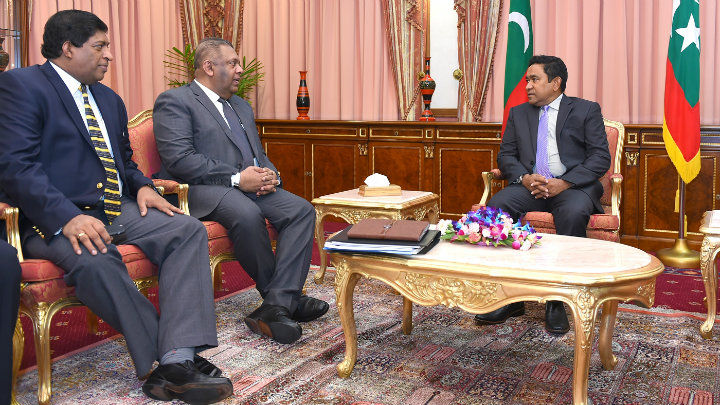India, Sri Lanka ‘lobbying’ Maldives for ex-president’s release
Lobbying by Maldives’ neighbours India and Sri Lanka played a pivotal role in President Abdulla Yameen’s sudden change of heart in authorising jailed former President Mohamed Nasheed’s travel to the UK for medical treatment, according to media reports.

17 Jan 2016, 09:00
Lobbying by Maldives’ neighbours India and Sri Lanka played a pivotal role in President Abdulla Yameen’s sudden change of heart in authorising jailed former President Mohamed Nasheed’s travel to the UK for medical treatment, according to media reports.
The dramatic turnaround “came after strong representations by India, and will effectively pave the way for Prime Minister Narendra Modi to visit the Maldives,” New Delhi-based The Hindhu said today.
Dr S Jaishankar, Modi’s special envoy and India’s foreign secretary, called on Yameen last week.
The Sunday Times, a Colombo-based newspaper, meanwhile reported that Foreign Minister Mangala Samaraweera and Finance Minister Ravi Karunanayake’s unannounced visit last week was also aimed at negotiating for Nasheed’s release.
Become a member
Get full access to our archive and personalise your experience.
Already a member?
Discussion
No comments yet. Be the first to share your thoughts!
No comments yet. Be the first to join the conversation!
Join the Conversation
Sign in to share your thoughts under an alias and take part in the discussion. Independent journalism thrives on open, respectful debate — your voice matters.




